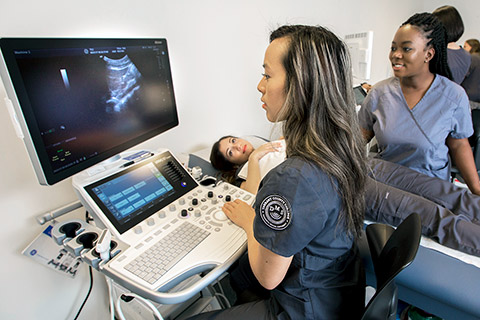Ultrasound technology has become an invaluable tool in the healthcare industry, allowing healthcare providers to visualize internal organs and structures in real-time. While ultrasound is commonly associated with radiologists and sonographers, there is a growing trend of nurses being trained to use this technology at the bedside. Nurse ultrasound training is proving to be a game-changer in enhancing patient outcomes and improving the quality of care provided.
One of the key benefits of ultrasound educational classes for nursing is the ability to expedite the diagnostic process. In many healthcare settings, nurses are the first point of contact for patients, and having the skills to perform an ultrasound can lead to quicker diagnosis and treatment initiation. By being able to quickly assess and identify potential issues such as fluid accumulation, blood clots, or other abnormalities, nurses can work with the healthcare team to develop a care plan promptly, leading to better patient outcomes.

Image Source- Google
Moreover, nurse-performed ultrasounds can also help reduce the need for unnecessary imaging tests and procedures. By having the ability to conduct an ultrasound at the bedside, nurses can assess the patient's condition in real-time and provide immediate feedback to the healthcare team. This can help in avoiding the need for additional imaging tests, which not only saves time and resources but also reduces the patient's exposure to radiation.
Another significant advantage of nurse ultrasound training is the potential for early detection of complications. Nurses who are trained to use ultrasound can quickly identify changes in the patient's condition, such as fluid build-up or organ dysfunction, which may not be apparent through other means of assessment. By catching these complications early, nurses can intervene promptly, potentially preventing further deterioration and improving patient outcomes.
Furthermore, nurse-performed ultrasounds can also enhance patient satisfaction. By being able to provide immediate answers and reassurance through visual images, nurses can help alleviate patient anxiety and improve communication between patients and healthcare providers. Patients are often more comfortable receiving care from familiar faces such as their nurses, and having the ability to perform ultrasounds can further strengthen the nurse-patient relationship.
It is essential to highlight that nurse ultrasound training goes beyond just technical skills. It also encompasses critical thinking, clinical judgment, and effective communication. Nurses who undergo ultrasound training develop a deeper understanding of anatomy and physiology, which can enhance their overall clinical practice. They learn to interpret ultrasound images and integrate this information into the patient's care plan, demonstrating their ability to provide holistic and patient-centered care.
